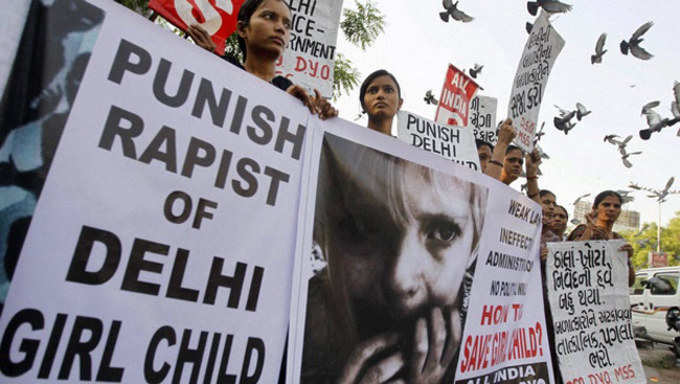
Can it be more shameful for us to learn that India has seen a 288 per cent increase in the arrest of juveniles for committing rapes in 10 years - from 2003 to 2013. Even more disturbing is the fact that arrests of juveniles in the age group 16-18 has increased to almost 60% in this period, which is the highest among all three juvenile age groups.
Despite such alarming facts staring at us, we still required a brutal and horrifying Delhi gangrape-murder of a female paramedical student on Delhi streets to realize the threat from rising
juvenile crimes in the country. It wasn’t until the spine-chilling details of the crime emerged and we learnt that the youngest rapist in the case (17 years’ old) was infact the most brutal one, that we stood up against unfair constitutional concession to dangerous minors like him in India which says those under 18 to be sentenced only to a maximum of three years in a reform facility. That meant no strict trial for him and others like him.
You will be surprised to know that even before the Delhi gangrape incident took place, the statistics on juvenile crimes were startling.
-In 2011, 33,887 juveniles were arrested for crime. Of these, 21,657 fell in the 16-18 years age group. In Delhi itself, of the 925 boys arrested for juvenile crimes in 2011, 567 were in the 16-18 years age group.
-The next year 2012 which saw the
Nirbhaya gangrape had the number of juvenile offenders steadily increasing. There were 39,822 juvenile arrests and the highest increase in the incidents of crimes committed by them was reported under assault on woman to outrage her modesty (132.3%) followed by insult to the modesty of women (70.5%) and
rape (60.3%). Notably, the debate about the trial age of juveniles between 16 and 18 years first began after the 2012 Delhi gang-rape case, in which one of the main accused was a juvenile. While the others accused in the case were given death (one committed suicide), the minor accused was sent to a remand home for three years.
-In 2013, the number of juvenile arrests increased to 43,506 which further up to 48,230 in 2014 when a total of 48,230 juvenile boys and girls were arrested.
Despite such a situation,
Maneka Gandhi introduced the Juvenile Justice (Care and Protection of Children) Amendment Bill in Parliament only in August last year. Yes, we did finally wake up to the need of a stricter juvenile law, one that would consider those above 16 who commit “heinous crimes” as adults. Finally, a gruesome rape case had led to massive debates in the political corridors, which were echoing in the Parliament. It was a welcome change for sure, but the crucial Bill passed in Rajya Sabha merely two days after the now 20-year-old ‘juvenile’ rapist of Nirbhaya walked out of jail amid vociferous protests, still awaits President’s assent to become a law.
Had it not been for the narrow scope of the prevailing law, and the new Bill being stuck in the Rajya Sabha due to the Parliament logjam, the consequent new law could have prevented the juvenile rapist, from getting out of jail. The new law would have set an unprecedented example to begin with. Justice was however not only delayed, but denied in one of the most gruesome case the country has ever witnessed. We wish no more Nirbhayas being raped and in the face of increasing crimes by juveniles, all India direly needs now is the Juvenile Justice Act.
 Can it be more shameful for us to learn that India has seen a 288 per cent increase in the arrest of juveniles for committing rapes in 10 years - from 2003 to 2013. Even more disturbing is the fact that arrests of juveniles in the age group 16-18 has increased to almost 60% in this period, which is the highest among all three juvenile age groups.
Can it be more shameful for us to learn that India has seen a 288 per cent increase in the arrest of juveniles for committing rapes in 10 years - from 2003 to 2013. Even more disturbing is the fact that arrests of juveniles in the age group 16-18 has increased to almost 60% in this period, which is the highest among all three juvenile age groups.